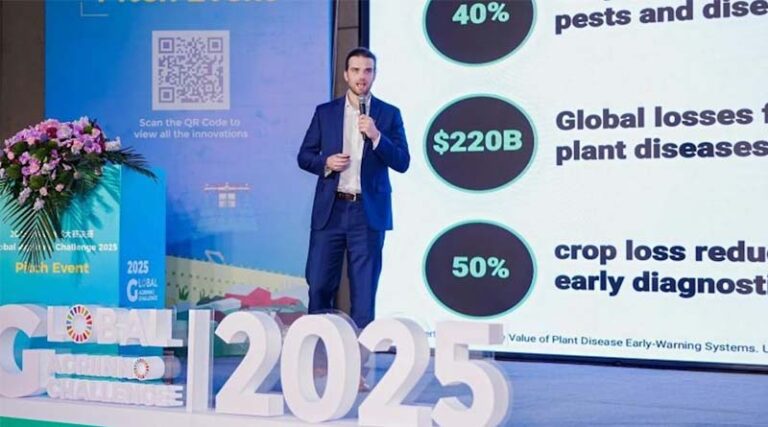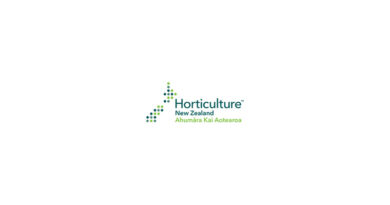
Verdia Diagnostics: Turning Plants into Early-Warning Systems for Crop Disease
15 October 2025, Raleigh: With a remarkable third-place win at the United Nations FAO Global AgriInno Challenge—competing against more than 500 innovations from 97 countries—Verdia Diagnostics has emerged as a global agri-tech frontrunner. The North Carolina State University (NC State) startup, led by CEO Zach Hetzler, is developing a new generation of cost-effective plant sensors that can detect crop diseases before any visible symptoms appear—offering farmers a vital tool to combat losses caused by pests and pathogens.
Verdia’s breakthrough technology stems from the Plant Aid project, one of the earliest research initiatives under the N.C. Plant Sciences Initiative (PSI). Hetzler and his team are now translating years of research into field-ready tools to address one of agriculture’s most persistent challenges—crop losses that account for nearly 40% of global food production.
“We’re building with the growers, not just for them,” Hetzler says, reflecting on his journey from chemical and biomolecular engineering research to agri-entrepreneurship. After earning his doctorate from NC State, he co-founded Verdia in February 2025 along with Professor Qingshan Wei, an expert in molecular imaging and diagnostics, and Professor Yong Zhu, associate head of the Department of Mechanical and Aerospace Engineering.
Their shared goal: to bring molecular plant diagnostics from the lab to the field.
The Science Behind Verdia’s Innovation
Verdia’s innovation lies in tiny, flexible sensors that attach directly to plant leaves. These sensors continuously monitor volatile organic compounds (VOCs) emitted by plants—chemical signals that change when a plant is under stress from disease or environmental conditions.
Using an array of VOC-reactive chemistries and machine learning algorithms, the sensors classify stress-related emissions and can identify infection up to a week before visible symptoms appear. Hetzler calls it “AI-enhanced smelling of stress for plants.”
This approach provides growers with continuous, real-time insights into crop health—transforming every monitored plant into a data-generating bio-indicator. Verdia is currently developing a digital dashboard to convert sensor data into actionable intelligence, helping farmers respond early and reduce yield losses.
From Lab Research to Global Impact
The technology—licensed from NC State—has already shown strong performance in controlled trials on tomato plants. Verdia is now preparing for greenhouse-scale pilot studies and plans to launch its first commercial pilots early next year.
The company’s initial focus is controlled environment agriculture, including greenhouse and vertical farming, where disease management is critical. Once validated and scaled, the sensors could transform open-field agriculture, offering an affordable, scalable solution for disease prevention across global cropping systems.
Hetzler acknowledges that the biggest challenge is not just technical validation but proving economic value to growers. “Farmers operate on tight margins. We need to show that our technology delivers clear returns through reduced losses and improved productivity,” he explains.
Entrepreneurship Backed by the Seed2Grow Program
Verdia’s journey has been supported by NC State’s Seed2Grow entrepreneurship program, which guides researchers in commercializing agricultural innovations. “As first-time founders, we knew that scientific expertise alone wasn’t enough,” says Hetzler. “Seed2Grow has helped us refine our business strategy, overcome early hurdles, and connect with industry mentors and investors.”
Following the Global AgriInno Challenge, Hetzler will present Verdia’s technology at the FAO Science and Innovation Forum in Rome from October 13–17, where the company will showcase its potential to strengthen global food security through early disease detection.
A Vision for the Future
Verdia Diagnostics aims to bridge the gap between cutting-edge plant science and practical farm solutions. By empowering growers with real-time, plant-level intelligence, Hetzler believes Verdia can help reduce global food waste, enhance sustainability, and support resilient agricultural systems.
“Our vision is simple,” Hetzler says. “If plants could talk, we’d listen. Verdia is making that conversation possible.”
Also Read: India’s Onion Acreage Up ~8%; Potato Area Jumps ~22.9%: Centre Says Sowing on Target
📢 If You’re in Agriculture, Make Sure the Right People Hear Your Story.
From product launches to strategic announcements, Global Agriculture offers unmatched visibility across international agri-business markets. Connect with us at pr@global-agriculture.com to explore editorial and advertising opportunities that reach the right audience, worldwide.






